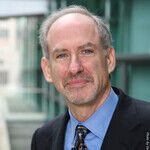I advise my students to avoid starting their papers with hackneyed platitudes — "Most historians agree ...," or worse yet, "When the going gets tough ..." — and to stay away from cliche opening sentences, such as "The Merriam-Webster Dictionary defines...."
I will breach my own rules.
The Merriam-Webster Dictionary defines "hero" as "a person admired for achievements and noble qualities" and "one who shows great courage." According to the Oxford English Dictionary, a patriot is "a person who vigorously supports their country and is prepared to defend it against enemies or detractors." In recent decades, those two words, along with "awesome," "epic" and many others have been abused or misused to the point that they have become seemingly meaningless. Well, that is what happens with living languages.
Words change meanings and often become vague. In Chaucer's time, the word "girl," for example, referred to both girls and boys; "meat," "clue" and "fizzle" used to mean food in general, a ball of yarn and the release of intestinal fumes, respectively.
The secular prophet George Orwell, best known for his timely (then and now) novel "1984," wrote the excellent essay "Politics and the English Language" in 1946. He decried the decay of the English language, which he largely blamed on political speech: its vagueness, its pretentiousness, its insincerity, the meaninglessness of certain words.
He acknowledged the bidirectional connection between language and thought. "It becomes ugly and inaccurate because our thoughts are foolish," Orwell wrote, "but the slovenliness of our language makes it easier for us to have foolish thoughts."
Among the abused, meaningless and pretentious words Orwell denounced in the wake of World War II were "socialism," "fascism," "democracy," "patriotic" and "epic." If, in Orwell's words, the English language in Great Britain was in a "bad way," in America today, it is in far worse shape: Foolish words lead to foolish thoughts, which lead to even more foolish words and thoughts.
Let's start with "epic." The word entered the English language in the late 1500s, meaning lengthy heroic poem, as in Homer's "The Iliad." In the 1700s, it became an adjective that meant heroic and grandiose. The Battle of St. Quintin, the Battle of Gettysburg and the invasion of Normandy qualify as epic, and so do the 1956 film "The Ten Commandments" and even the "Star Wars" film series.
In the 21st century, "epic" went from regular word to slang, morphing to mean great, huge or awesome. Advertising and magazines helped popularize the word's newfound meaning. In 2008, the Epic Burger chain opened in Chicago; a 2013 Cosmopolitan cover offered advice on how to have "epic sex." Almost anything can be considered epic: a prom dance, a wedding cake, even a slice of pizza.
Something epic used to require heroes and heroic actions, but the word "hero" has also lost its meaning.
In the late 1300s, the word crossed the English Channel from France. Originally from the Greek language, it was first used in reference to demigods. Later, it was applied to human beings who displayed extraordinary courage in the face of danger or death. "Being a hero," Will Rogers said, "is about the shortest-lived profession on Earth."
As in Orwell's day, politicians are partially responsible for the deterioration of the English language, starting with President Donald Trump. Imagine him as a spelling bee contestant. He is asked to spell "hero." That is an easy word for him: h, e, r, o. But can he use it correctly in a sentence? Let's see: "John McCain is 'not a war hero.'" "I should be considered a national hero." One endured five and a half years as prisoner of war; the other dodged service in the same war claiming he had foot bone spurs.
Trump and those who parrot him bestow blanket patriotic status to some groups. All those who serve in the military, regardless of their actions, are heroes. So are all members of law enforcement, whether they act heroically or abusively. Farmers and ranchers who feed America are heroes, too. Border Patrol agents are "superheroes."
What about teachers, many of whom are being deployed to schools in the face of potential COVID-19 infection, perhaps even death? When does a pandemic cross the line to become a genocide?
"Patriot" has run a similar course. Trump once claimed, "there is nobody more Patriotic than me." He declared disgraced former Sheriff Joe Arpaio and former presidential candidate Herman Cain patriots, and gave FOX's Sean Hannity the title "Great American Patriot." He has bestowed the same honor on anti-Black Lives Matter protesters. Former national security adviser John Bolton was a patriot until he was not. Red states and rural America are patriotic; cities and blue states are not.
Orwell has the final word: "When the general atmosphere is bad, language must suffer."
Readers can reach Luis Martinez-Fernandez at [email protected]. To find out more about Luis Martinez-Fernandez and read features by other Creators Syndicate writers and cartoonists, visit the Creators Syndicate website at www.creators.com.
Photo credit: StockSnap at Pixabay






View Comments